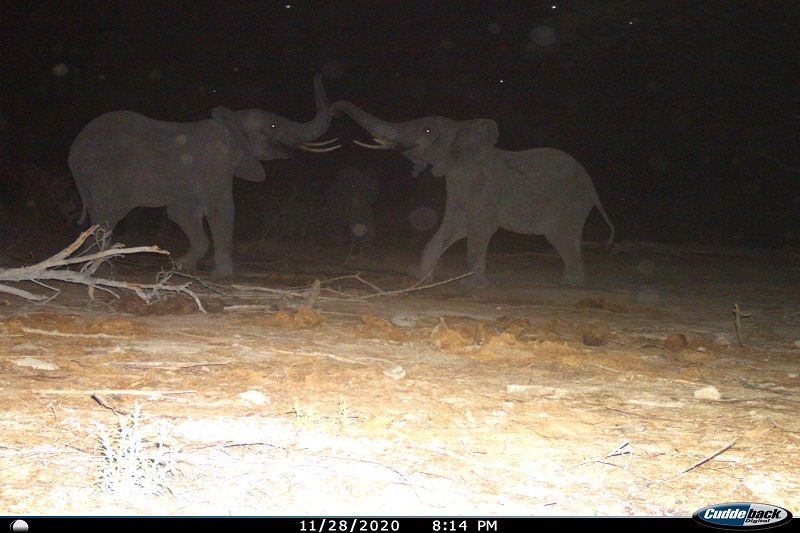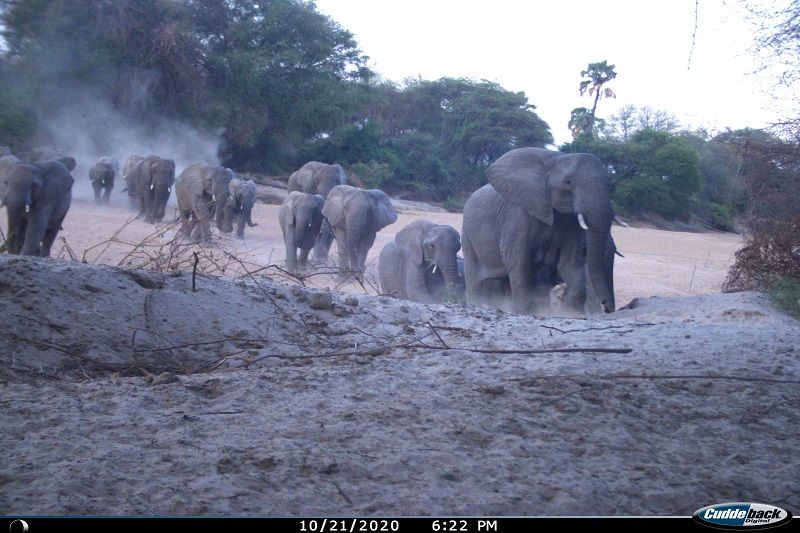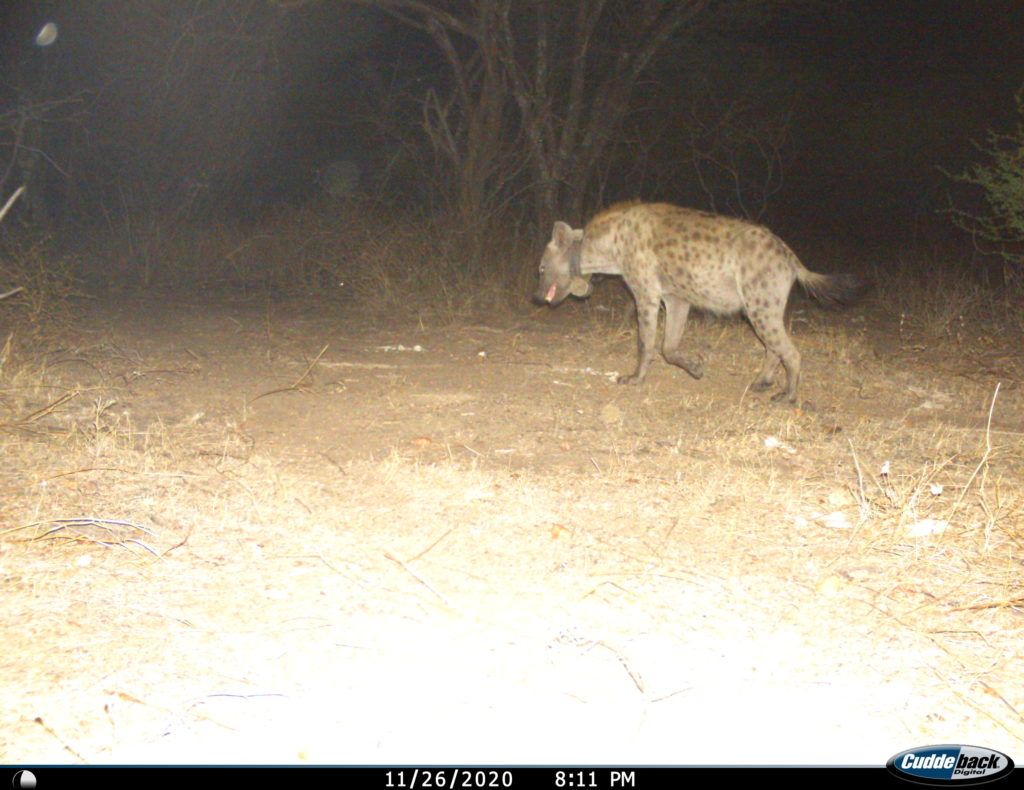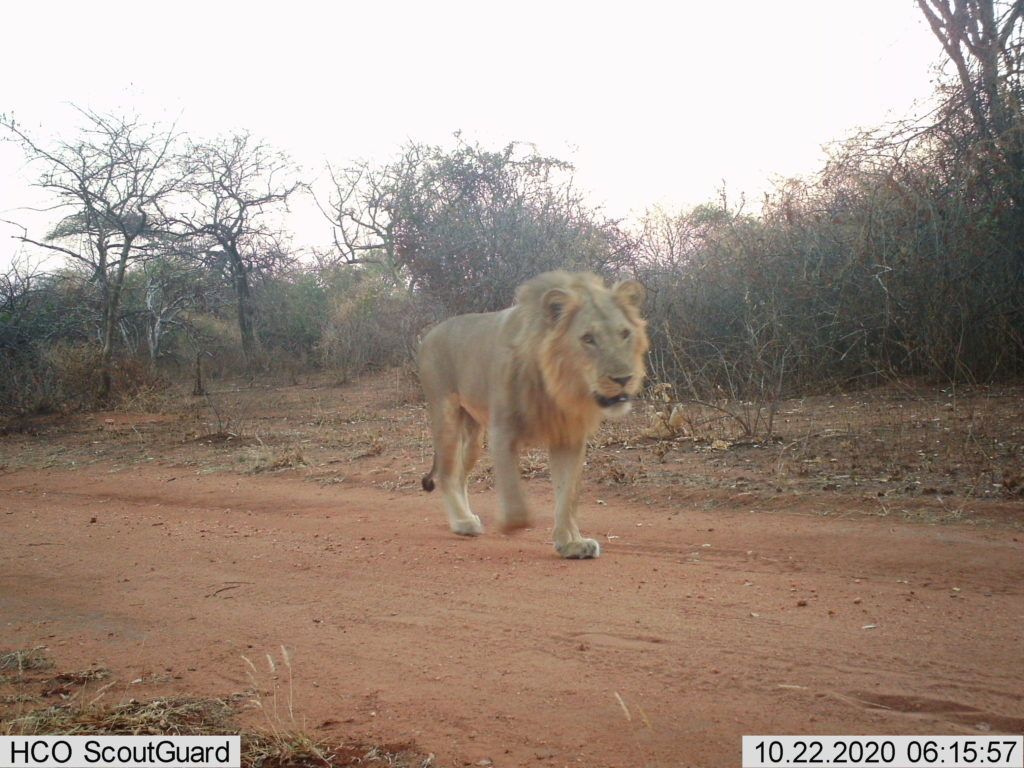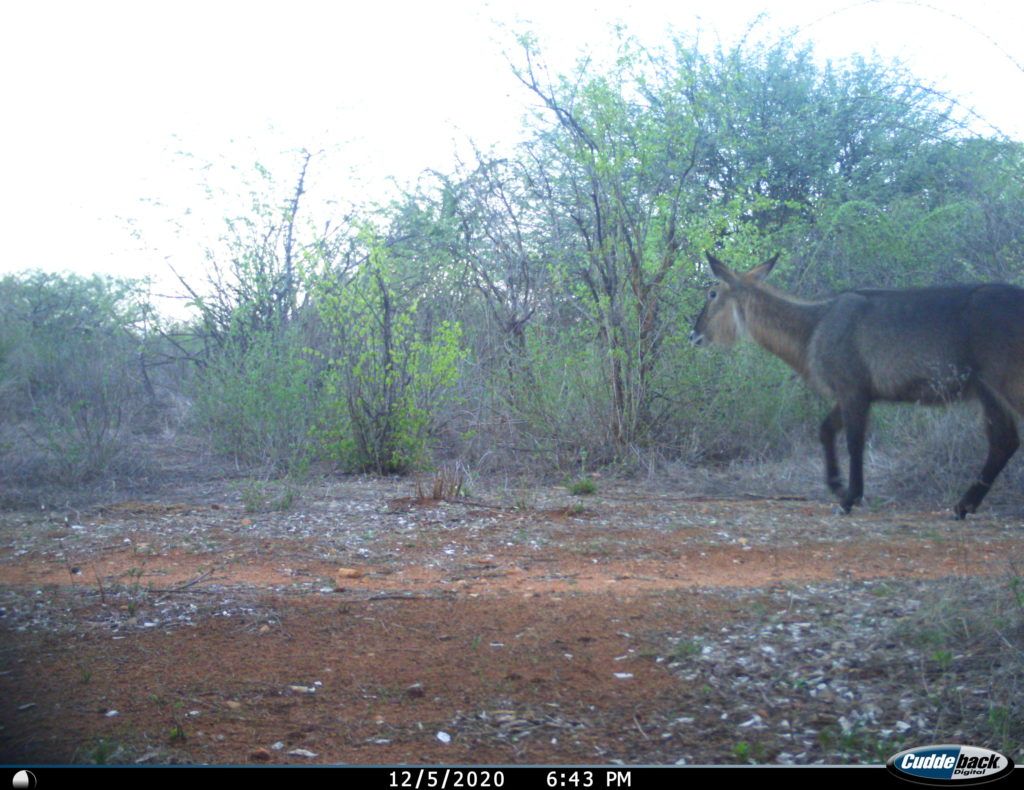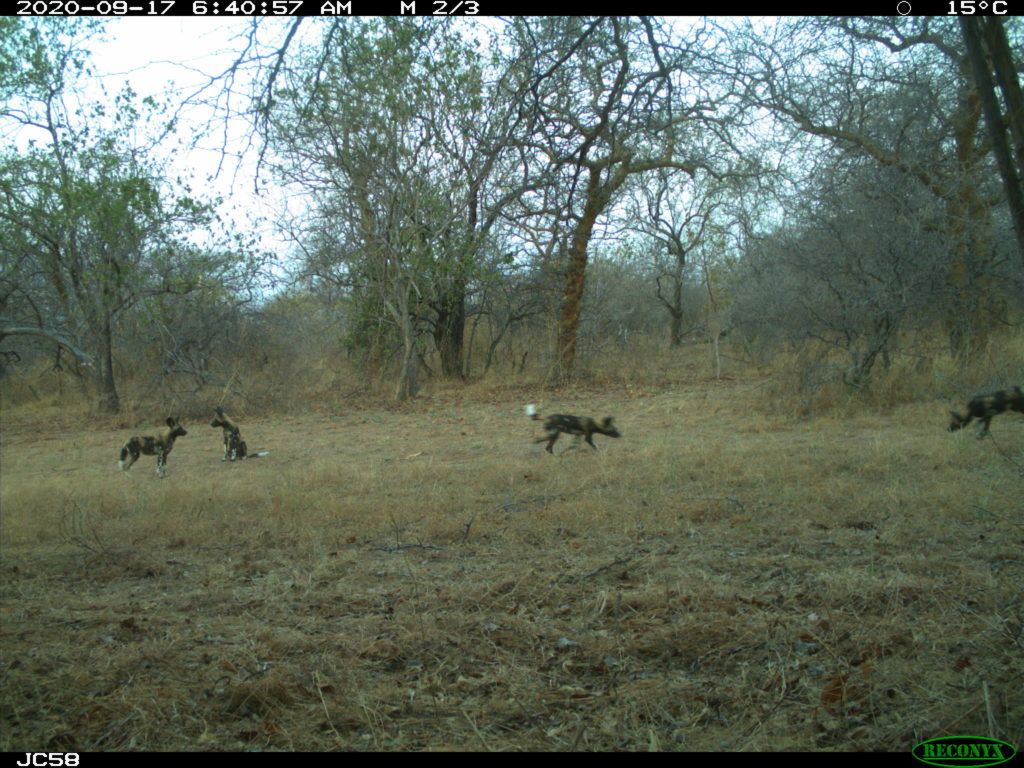After a difficult start to last year, compounded by vast flooding, Amy Dickman and Ruaha Carnivore Project’s team in Tanzania retuned to work with a vengeance. Giving direct benefits to communities for the presence of wildlife is at the core of their work. They believe if people see wildlife as a resource, they’ll tolerate the damage these animals can cause to their livelihoods, which can be devastating. In Kisanga there was a recent attack where 12 calves were killed by spotted hyaenas after getting lost and spending the night in the bush.
Villages competing for wildlife snaps
One way the team ensure wildlife bring benefits to the village is through the Community Camera Trapping programme. Villagers place camera-traps on their village land, and receive points for each wild animal photographed. More points are given for threatened or conflict-prone species, particularly carnivores. The villages compete against each other in groups of 4, and every 3 months, the points are translated into additional education, healthcare and veterinary benefits. Each village receives some benefits, but the winning village receives $2000 worth of benefits, the second $1500, the third $1000 and the fourth $500. The points are then reset and it starts again. This highlights that the benefits don’t come from the project itself, but from the actual wildlife that is on village land, increasing direct tolerance for these species.
Supporting pastoralists and teachers
In October, thanks in part to 18 spotted hyaena sightings, Kisanga won $2,000 for improving the local health clinic and the primary school. A third of the benefits is reserved for pastoralists, who are often not the majority in the village but who suffer most of the negative consequences of living with carnivores. The pastoralists received pumps to spray their livestock to avoid flies and ticks. Over the years benefits have been used to build toilets in the school and to build a house so the village can have a resident doctor. The last round of benefits was used by the school to contribute towards the living costs of seven volunteer teachers. There is a major shortage of teachers locally and this will increase the quality of teaching in the school.
Thank you for helping us fund this research to protect carnivores in Tanzania.
If you’d like to support this work, please donate or set up a direct debit here today.
Find out more about our work to protect carnivores in Tanzania:

